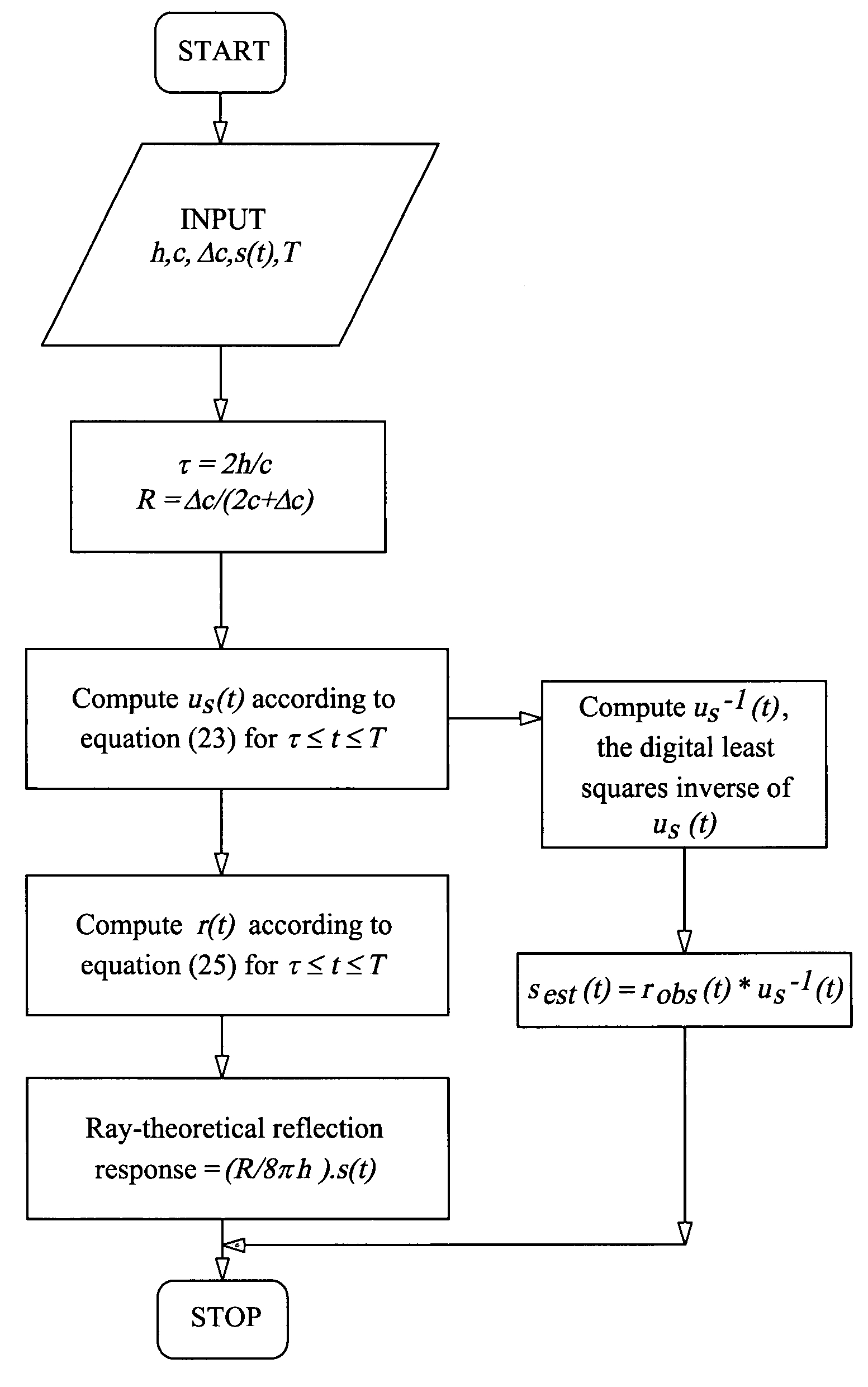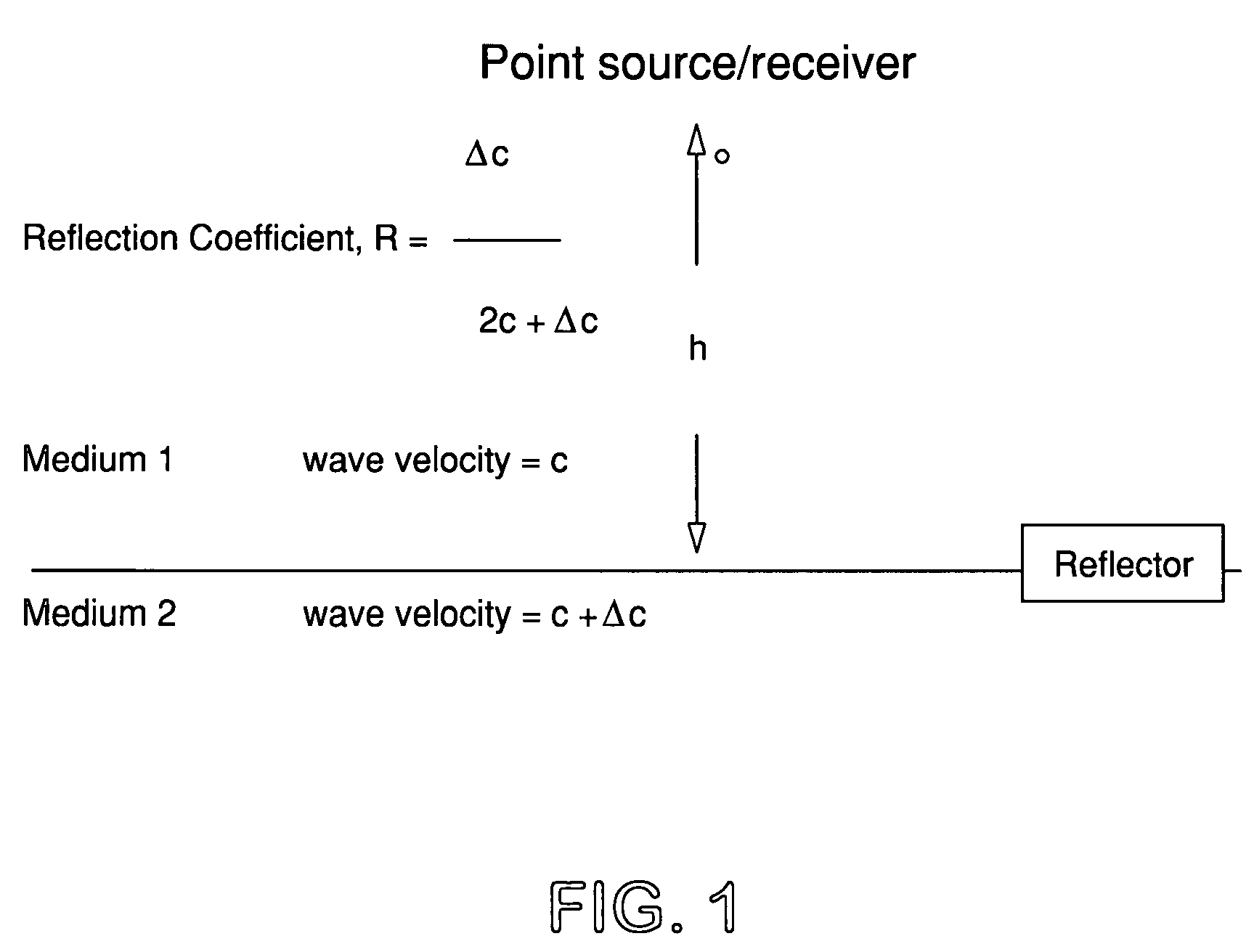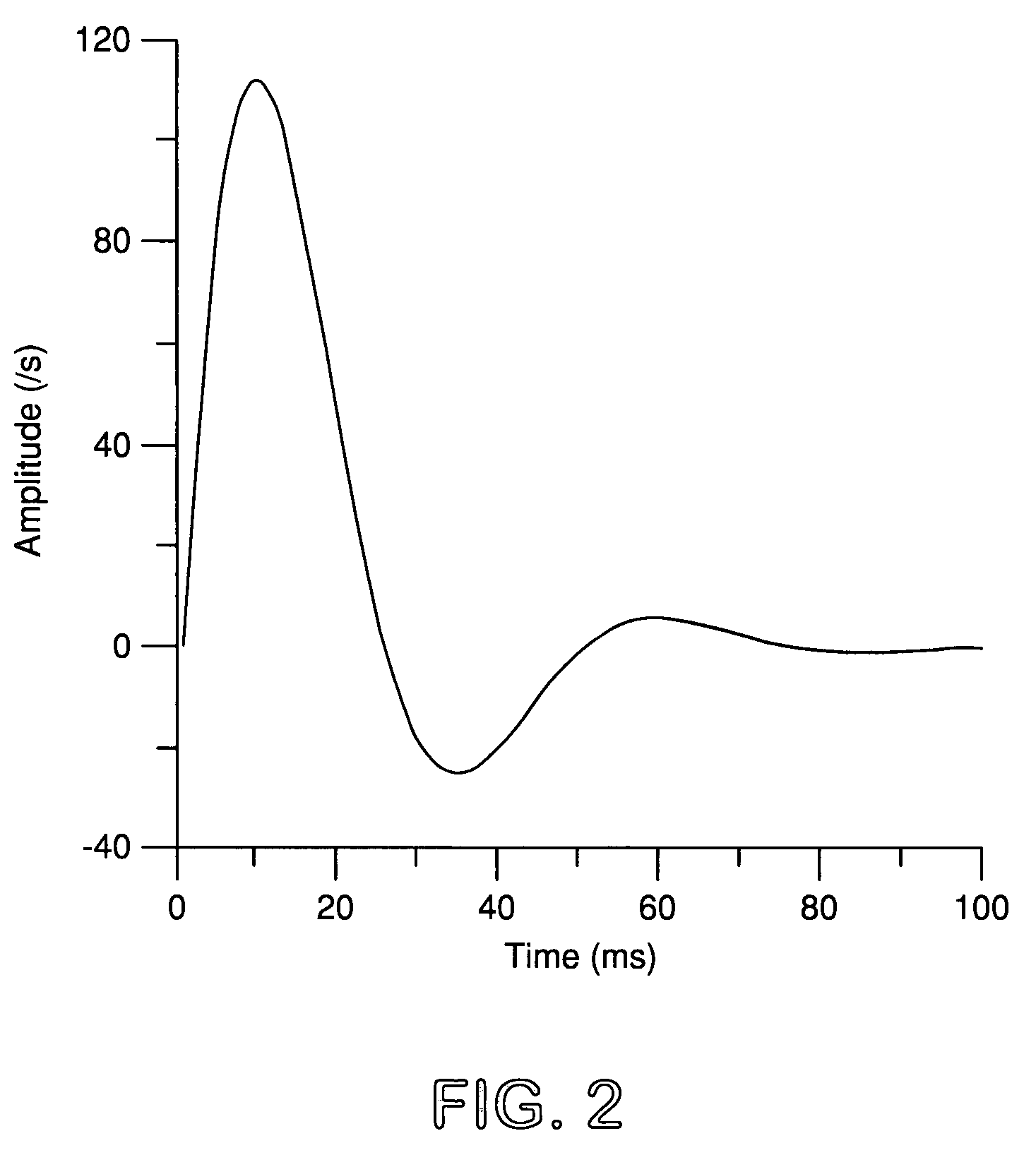Method for computing an exact impulse response of a plane acoustic reflector at zero offset due to a point acoustic source
a plane acoustic reflector and exact impulse response technology, applied in the field of exact impulse response of plane acoustic reflector at zero offset due to a point acoustic source, can solve the problems of inability to determine the time-spatial position of seismic trace, inability to solve the solution, and inability to use line sources infinitely
- Summary
- Abstract
- Description
- Claims
- Application Information
AI Technical Summary
Benefits of technology
Problems solved by technology
Method used
Image
Examples
example 1
[0133]This example consists of computing the zero-offset reflection response of a plane reflector due to a point source and a given seismic source-time function. The reflector and its parameters are depicted in FIG. 1 and FIG. 3. The source-time function is represented in FIG. 2. Explicitly, the source-time function, s(t) has representation according to equation
s(t)=212exp(−60t).sin(40πt), Eq. 28
which is a special case of Berlage signal (Cerveny, 2001). Equation (25) is used to compute the reflection response. The functions s(t) and H(t−τ) / t3 are first digitally represented with a sampling interval of 1 millisecond and then their convolution is computed. The computation of r(t), the zero-offset reflection response is then straightforward following equation (25). This response is depicted in FIG. 3.
[0134]The response computed can serve several goals. It would provide a computed standard against which the reflection response computed by a seismic numerical modeling algorithm for the ...
example 2
[0137]This example demonstrates the role of equation (25) in identifying a situation when a ray-theoretical solution is accurate enough and when it is not. FIG. 3 represents the complete wave-theoretical solution for a source-reflector (FIG. 1) specified in the caption of FIG. 3 and the source-time function depicted in FIG. 2. FIG. 4 represents the ray-theoretical solution for the same circumstance. FIG. 5 depicts the difference between the wave-theoretical and the ray-theoretical solution. It is evident that the magnitude of the maximum difference is a substantial fraction (˜13%) of the maximum of the wave-theoretical solution. Thus, the ray-theoretical solution lacks efficacy in this instance.
[0138]FIG. 6 depicts the complete wave-theoretical solution for a point acoustic source-reflector (FIG. 1) specified in the caption of FIG. 6 and the source-time function depicted in FIG. 2. The only difference with the source-reflector parameters specified in FIG. 3 is that h, the depth to t...
PUM
 Login to View More
Login to View More Abstract
Description
Claims
Application Information
 Login to View More
Login to View More - R&D
- Intellectual Property
- Life Sciences
- Materials
- Tech Scout
- Unparalleled Data Quality
- Higher Quality Content
- 60% Fewer Hallucinations
Browse by: Latest US Patents, China's latest patents, Technical Efficacy Thesaurus, Application Domain, Technology Topic, Popular Technical Reports.
© 2025 PatSnap. All rights reserved.Legal|Privacy policy|Modern Slavery Act Transparency Statement|Sitemap|About US| Contact US: help@patsnap.com



